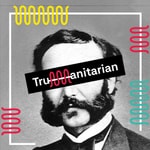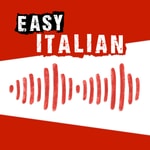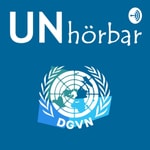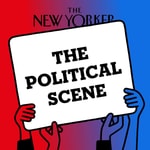EU Scream – Details, episodes & analysis
Podcast details
Technical and general information from the podcast's RSS feed.
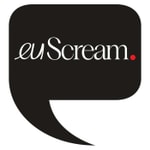
EU Scream
EU Scream
Frequency: 1 episode/21d. Total Eps: 118

Politics podcast from Brussels
Recent rankings
Latest chart positions across Apple Podcasts and Spotify rankings.
Apple Podcasts
🇩🇪 Germany - government
18/07/2025#85🇩🇪 Germany - government
17/07/2025#77🇩🇪 Germany - government
16/07/2025#51🇩🇪 Germany - government
15/07/2025#29🇫🇷 France - government
28/06/2025#98🇫🇷 France - government
26/06/2025#78🇫🇷 France - government
25/06/2025#72🇫🇷 France - government
24/06/2025#64🇫🇷 France - government
23/06/2025#58🇫🇷 France - government
22/06/2025#52
Spotify
No recent rankings available
Shared links between episodes and podcasts
Links found in episode descriptions and other podcasts that share them.
See all- https://twitter.com/hrw
11 shares
- https://twitter.com/MehreenKhn
6 shares
RSS feed quality and score
Technical evaluation of the podcast's RSS feed quality and structure.
See allScore global : 68%
Publication history
Monthly episode publishing history over the past years.
Ep.109: Ministry for the Future IRL
Season 1 · Episode 109
vendredi 23 août 2024 • Duration 38:04
There's a lot of talk right now about future generations. Ursula von der Leyen of the European Commission says she'll create a portfolio with responsibilities for intergenerational fairness. A Summit of the Future to be held in September at the United Nations also helps explain the buzz. In this, the first of two episodes, a conversation with Elizabeth Dirth, member of a real-life network for the future described in Kim Stanley Robinson's bestselling novel The Ministry for the Future. In the book the Ministry helps to push nations beyond a series of dystopian events to bring climate change under control. Elizabeth says it's time to move that approach to the real world, and to give future generations a voice in reshaping the economy, curbing disease outbreaks, and sustaining action on climate change. The ZOE Institute, a German economics think tank where Elizabeth is managing director, is among the organisations pushing the UN Secretary General to appoint a Special Envoy for Future Generations, a role Elizabeth describes as "a potential minister for the future at the UN level." Elizabeth says her ideas are markedly different from that of tech titans like Elon Musk who have a penchant for the future. For Musk and his acolytes, protecting future generations means putting resources into highly speculative technologies that could be highly profitable. They also seem to be betting on colonising Mars — ahead of preserving life on Earth. Listen out for Part Two of this series: a conversation with author and philosopher Roman Krznaric on how far into the future we should plan for, and on whether controversial concepts like Longtermism and Effective altruism have a role to play. Music this episode by Maarten Lichtert.
Ep.108: Accountability in the Von Der Leyen Era, Greece, Pfizer, Iran
Season 1 · Episode 108
samedi 29 juin 2024 • Duration 01:02:29
Border violence. Hostage diplomacy. Vaccine purchases. Just some of the areas where opaqueness in EU decision-making can erode public trust and ultimately democracy. These also are areas where accountability journalism like freedom of information requests can help uncover undue influence by lobbies and foreign powers as well as abuses by security services. One of the highest profile cases of accountability journalism in Europe to date is the decision by The New York Times to sue the European Commission for access to phone messages — messages in which the Commission's president, Ursula von der Leyen, and the chief executive of Pfizer, Albert Bourla, reportedly negotiated vaccine purchases during the Covid-19 pandemic. Matina Stevis, the outgoing Brussels bureau chief for the Times, who is part of that lawsuit, says such scrutiny would be comparatively banal in jurisdictions like the US where news media and government regularly wrangle in court over the line between an executive's ability to govern and the public's right to know. But in the EU such scrutiny still can arouse accusations of euroscepticism and even sympathies with Brexit. Matina says the EU's accountability muscles need "deepening and flexing and exercising" but she also suggests reporters working EU corridors may need to do more to avoid "falling into the traps of access journalism" and "going, going softly so that people keep answering their phones when you call." Also in this episode, the pros and cons of reporting on the case of Johan Floderus, the EU official recently released from captivity in Iran. And a hard and harrowing look at the evidence of deadly actions by the Greek coastguard toward migrants on the Mediterranean Sea — and at the half-hearted attempts by Brussels to rein in such abuses amid tectonic shifts in refugee law and policy. These include calls for the so-called externalization of migration where refugees and asylum seekers must have their applications to enter the EU assessed offshore in countries like Albania or even Rwanda. Such shifts also entail discussions on reforming and even abandoning the 1951 Refugee Convention that was a key plank of postwar humanitarianism.
Ep.99: Conflict Data, Navalny, Militias, Gaza, German Farmers
Season 1 · Episode 99
dimanche 18 février 2024 • Duration 49:53
The world is growing more violent. Worst affected countries include Myanmar, Syria and Mexico as well as those experiencing more obvious crises like Gaza and Ukraine. That's according to the Armed Conflict Location & Event Data Project or ACLED. But there's also growing concern about more developed countries with longer established democratic traditions like the United States. In this episode ACLED chief of external affairs Hugh Pope talks about how data can give a uniquely accurate and new perspective on unfolding events and help anticipate where conflicts will worsen and where peace building efforts should be targeted. "One of the reasons that people miss what they think are unexpected ‘black swans’ is they weren't watching the data," says Hugh, who notes that current ACLED early warning data show conflict in countries including Lebanon and Sudan at alarming levels. Among other recent findings: the upsurge in conflict in West Bank Palestinian territories last summer that may have presaged the attack by Hamas in October; and how peaceful Black Lives Matters protests were in the United States in 2000 relative to the gatherings involving armed militias. Among European findings: and the very high number of protests by German farmers in January compared to neighbouring countries like France. That suggests the potential for German farmers to mobilise again — especially if cost-of-living issues continue to bite and the far-right Alternative for Germany takes advantage of the movement. Hugh also recalls his warnings against the rush to war in Iraq in the early 2000s when he was a correspondent for The Wall Street Journal — and when he discovered how an astrologer's guidance could prove more compelling than his own reporting. There is a strong case, says Hugh, for promoting "data for a more peaceful world."
Let It Go
Season 1 · Episode 9
jeudi 10 janvier 2019 • Duration 35:40
What came of French President Emmanuel Macron’s call for ordinary citizens to lead a European political renaissance? Well it happened. Sort of. Twenty-six other European Union member states minus the UK agreed to go along with the French idea. During the past year hundreds of consultations, dialogues and debates have been held across Europe. These events amount to a new and experimental approach to connecting citizens to Europe. But they also look a lot like a Tower of Babel, lacking a common format, branding and goals, because national and European authorities retained so much individual control. We talk to Corina Stratulat of the European Policy Centre and Laura Sullivan of WeMove.EU about a form of democracy that's only going work if authorities Let it Go. Don't miss Laura's tribute to Queen Elsa who, by relinquishing her gloves and tiara, gained more mastery over her powers. Surely there's a message for Europe. First, Tom and James talk acronyms and abbreviations — including those that designate organisations and institutions meant to open up Europe to citizens and to quell criticism from eurosceptic forces. "Signor, quell’infelice” from L' Orfeo by Claudio Monteverdi is public domain; "L.T.H. (AA's Refix)" by Abstract Audio is licensed under BY CC 3.0; "Muscovite No. 9" is played by Lara Natale.
Migrating From the Truth (Update)
Season 1 · Episode 8
vendredi 14 décembre 2018 • Duration 33:50
The far-right again sets the agenda in Europe and successfully pushes governments to oppose a UN pact on migration. Shame. An EU minister finally slaps down Italy’s Matteo Salvini for Nazi-style migrant-bashing. Respect. Karen Mets of Save the Children debunks claims by Lauren Southern, who boasts to half-a-million YouTube subscribers how she saved Europe from migrants. Campaigner Lyudmyla Kozlovska explains how far-right trolls sought to pass her off as Christine Blasey Ford. "Beethoven Symphony No. 9 in D minor, Op. 125" by Papalin is licensed under CC BY 3.0. "They're coming" by Zapac is licensed under CC BY 3.0. "Muscovite No. 9" is played by Lara Natale.
Yellow Vests, Green Europe
Season 1 · Episode 7
vendredi 7 décembre 2018 • Duration 31:05
Protecting the climate and ordinary working people is a delicate exercise. Look at the huge Yellow Vests protests in France where President Macron mishandled an environmental tax and the far-right exploited the discontent. Bas Eickhout, a Dutch Green lawmaker vying for a top job in Brussels, says smarter climate policies can avoid more burning cars, flying cobblestones and mass deployments of police. Eickhout also dings far-right lawmakers for hypocrisy over fossil fuels and wasting taxpayer money. First we play a round of There Are No Good Answers featuring the British far-right lawmaker who wrote a draft opinion for a European Parliament committee denying climate science. “Beethoven Symphony No. 9 in D minor, Op. 125” by Papalin is licensed under CC by 3.0. “Stimmen im Kopf” by Hans Atom is licensed under CC BY-NC 3.0. “Muscovite No. 9” is played by Lara Natale.
You Say You Want a (European) Revolution
Season 1 · Episode 6
vendredi 30 novembre 2018 • Duration 32:50
Citizen-focused movements and parties like DiEM25 and Volt Europa are looking for ways to challenge politics-as-usual. But are they a smart way to fight populism and shore up the European project? Colombe Cahen-Salvador, a one of Volt's three founders, explains why participatory budgets and software linking voters with representatives in the European Parliament are on her party's agenda. Tom says he likes Volt's optimism. He also says he's already given €25 to DiEM25. James warns of the dangers of direct democracy. Pelle Christy, an EU affairs expert from Denmark with a Eurosceptic past, says the new parties are going to have to make tough compromises if elected — or risk making Europe’s problems with populism worse. "Een Laaste Liedje" by Tres Tristes Tangos is licensed under CC BY-NC 4.0. "Exotica" by Les Juanitos is licensed under CC BY 2.0 FR. "Muscovite No. 9" is played by Lara Natale.
Badass Communication
Season 1 · Episode 5
vendredi 23 novembre 2018 • Duration 32:45
Tom interviews Proud Bear, the masters of political satire who are turning the logic of Brexit on its head. Lukas and Andrei – not their real names – masquerade as Russian military intelligence officers who helped swing the vote for Brexit. In reality, Proud Bear want to highlight the need for a full inquiry into suspected Russian meddling. Brexiteers promised to take back control from the EU. James talks with Professor Anu Bradford of Columbia Law School about why that may never happen. Hint: look at The Brussels Effect. First, Tom talks about how Leave.EU raised money to spread lies about Europe ahead of the Brexit vote. James contrasts that campaign with the EU's relatively ineffectual political messaging.
"L.T.H. (AA's Refix)" by Abstract Audio is licensed under BY CC 3.0
"Muscovite No. 9" is played by Lara Natale
Mad About France
Season 1 · Episode 4
vendredi 16 novembre 2018 • Duration 27:20
A new generation of far-right Europeans is deploying slick techniques to avoid being called neo-Nazis. David Ibsen, the executive director of the Counter Extremism Project, says far-right groups in France are among those to have borrowed heavily from a playbook developed in the United States. First, James and Tom discuss Marine le Pen’s refusal to undergo a psychiatric test. If the leader of the French far-right is a little crazy, what kind of crazy is she?
"L.T.H. (AA's Refix)" by Abstract Audio is licensed under BY CC 3.0
"Muscovite No. 9" is played by Lara Natale
Migrating From the Truth
Season 1 · Episode 3
vendredi 9 novembre 2018 • Duration 28:25
James and Tom talk about fighting incivility with incivility after an EU minister slaps down Italy’s Matteo Salvini for migrant-bashing. Respect. Far-right activist Lauren Southern tells her half-million followers she helped save Europe from refugees. James unpacks Southern’s claims — and her antics on the Mediterranean — with Karen Mets of Save the Children. Far-right Internet trolls have used a photograph of Ukrainian human rights campaigner Lyudmyla Kozlovska to give the false impression Christine Blasey Ford met George Soros. Kozlovska shares her strange tale, which offers another glimpse into post-truth politics.
"Beethoven Symphony No. 9 in D minor, Op. 125" by Papalin is licensed under CC BY 3.0
"They're coming" by Zapac is licensed under CC BY 3.0 license
"Muscovite No. 9" is played by Lara Natale

